-
Posts
770 -
Joined
-
Last visited
Content Type
Profiles
Personas
Wiki
Rules
War
Systems
Safety
Player Conduct
Forums
Forms
Posts posted by thesmellypocket
-
-
The Flaws of the Absolute, by Ser Francois d’Ibelin
Contents
I.Introduction
II.Misgivings with Rulership
III.The Way Ahead
I.Introduction
I tell thee truly, dear reader, that I have fought for this realm for many years. Under the banners of both Ashford and Horen, I have travelled to distant lands and laid waste to her enemies. Thus, I must say this, before I begin my writings.
If His Imperial Majesty (Long may he rule) should read this, know that I think thee a noble and just ruler. I have no slight or quarrel with you, yet I fear some of your policies are misguided. They are short-sighted, for the reasons which I will beseech you with in this piece. These issues are: the disregard of the rule of law for arbitrary rulership, the abandonment of our feudal customs and rights, and the establishment of an absolute despotism, in which, in the Emperor’s very words ‘The Emperor is the Law.’ There is no law he must abide by, but his accountable only to his own consciousness; his own thoughts.
The reasons for which this style of rulership is troublesome I shall relay in parts, these are:-
The Problem of Succession,
Injustices against nobles and common men,
And disregard of custom and law.
Then I shall relay my solutions to these issues.
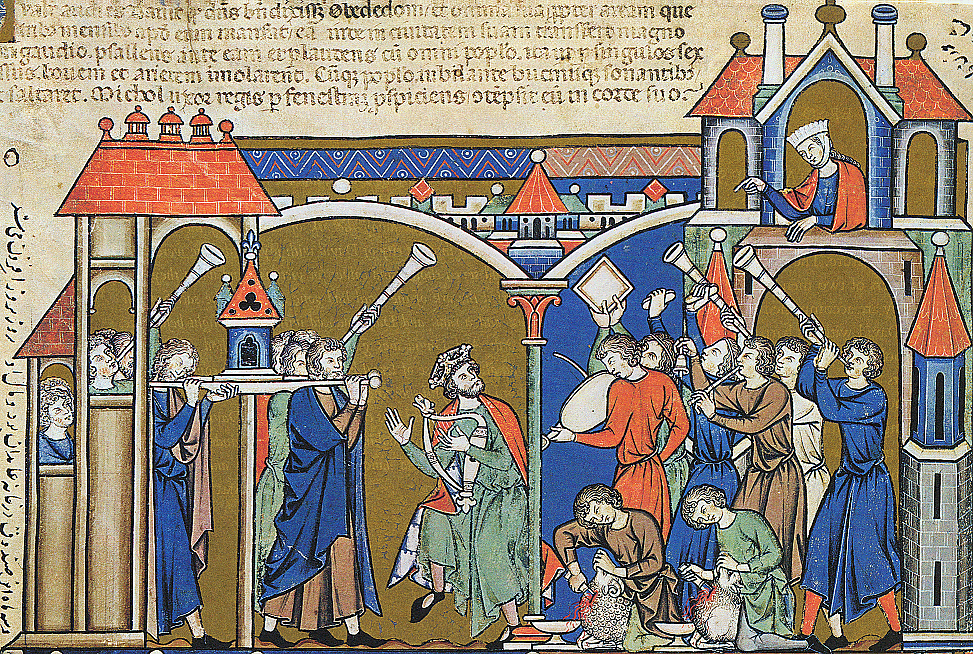
II.Misgivings with Rulership
a.The Problem of Succession
Our current ruler is competent. However, this will not last forever. One day, he shall pass away, and his sons shall take his place, and their sons after them, and so on and so forth. In the current system with a good ruler, the Empire can hold together because we can trust our ruler not to abuse his power frequently.
One day, inevitably, there shall be a time when the Imperial crown and sceptre shall be passed onto a man not so inclined. At that moment, we shall have full anarchy and chaos, and many vassals shall be unjustly incarcerated or even executed, many a burgher will lose his life, the serf will lose his plot and the craftsman shall be without work. If there were restrictions on the monarch, then the vassals could work with him, and, God willing, there shall be both stability and just rulership. However, should there be the current style, we shall see one of two scenarios emerge:-
I.The vassals will grow tired of the rulership and attempt an overthrow. God frowns upon treason and regicide, so in such an atmosphere surely God will punish us for our sins. Further, such an instability will cause the Empire to fracture, and vassals shall no longer care for Imperial authority at all.
II.The vassals shall remain loyal. In which case, the monarch will lay waste to his Empire without a single protesting voice, and many a good and godly man will lose his life. There shall be nothing to limit him in all his hedonistic vices; thus we can see the Empire shall fall into decadence and incompetent rulership. The Emperor, not concerned with good rulership, shall appoint men to high positions based purely on friendship, and thus a stream of hedonists and sinners shall rule the Empire, prompting the wrath of the most Holy Creator.
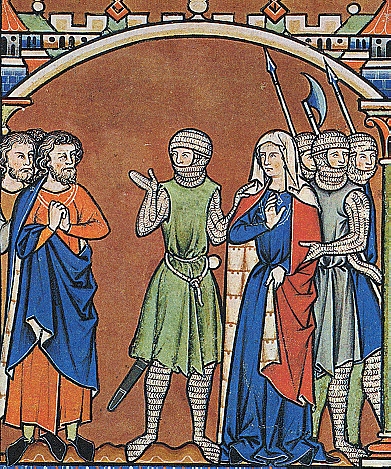
b.Injustices against common men and vassals
The Emperor will be bound by no law. There shall be no legal defense, and the rule of the law is thus replaced by arbitrary whims. In such a case, it is hard to imagine that a boy, growing up to by heir and taught he will rule absolutely, shall care not for the rule of law. Thus, justice will be in disrepair, replacing it will be an arbitrary whim.
Thus will many good and godly men be unjustly and unfoundedly subdued and persecuted with little regard for life of property. There, it must be established, no man may be judged except by the lawful judgement of his peers.
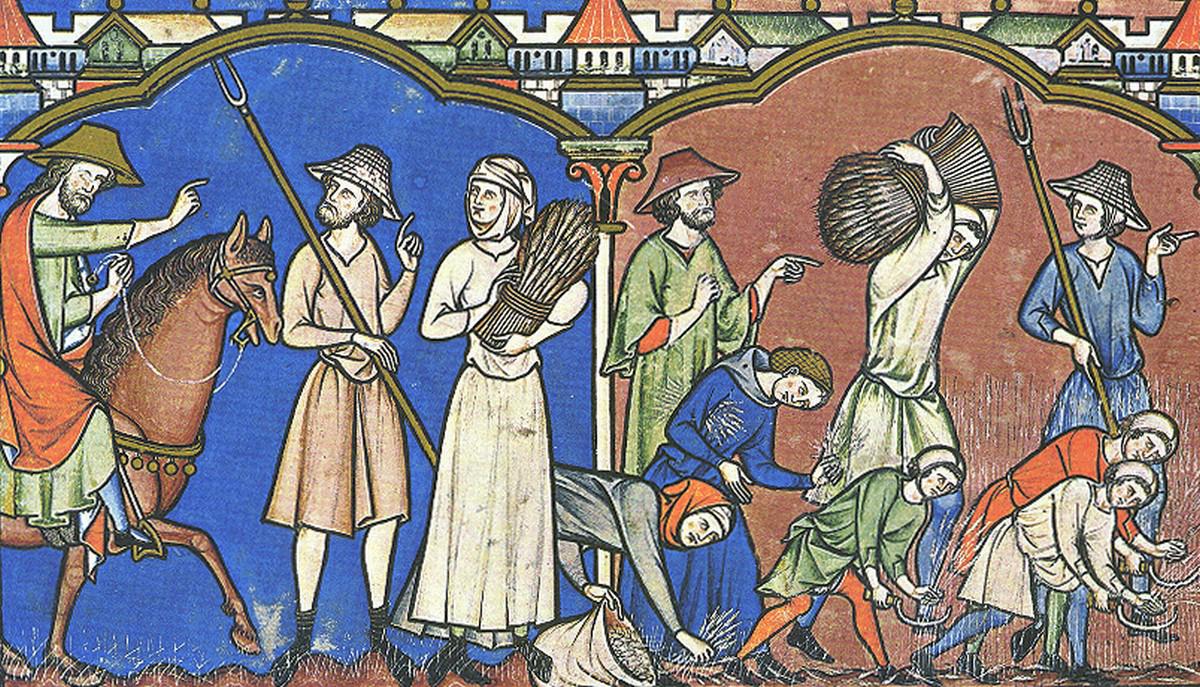
c.Disregard of Custom and Law
When I fought under Augustus d’Amaury (May God rest his soul) and Denis de Bar (May God favour him) in Adria, I fought to sustain the laws that had been established under the King, Olivier de Savoie (May God rest his soul.)
These laws were sacred, meant never to be revoked. Yet I see them dismissed readily, spitting on the graves of their authors and their sovereigns! These laws were established for a reason, and that was to secure a balance in the realm, so that the Empire may serve as many as possible. Not a single man.

III.The Way Ahead
I suggest these amendments be made to our current government.
I. A new Feudal Law is drafted, the Provisions of Felsen. This will entail the rights and responsibilities of the monarch, the vassals, the clergy, and the commoners. Under this law shall be established a degree of autonomy for the vassals, limitations of taxation, legal protection for men of all classes, and the creation of an assembly which will represent the vassal’s, gentry’s and burgher’s interests. The Emperor shall remain the head of the realm and the primary legislator.
II. There is a recodification of law, or the Lexicon of Ashford is reestablished. By this law and only by this law will people be tried.
III. The Emperor may levy a tax when he marries his eldest daughter, knights his eldest son, pledges a crusade, once when he goes to war (may only be raised once), and once when he undertakes a large construction project in the capital. Taxes may not exceed 2250 minas for dukes and princes, 1500 for counts, and 750 for lower vassals. This is to prevent taxation being used as a measure to punish vassals, rather than being a way to sustain good order and discipline in the Empire. The burghers of Felsen may be taxed a sum of 2000 minas, to be delivered by the mayor. These sums are the absolute maximums.
IV. The aforementioned assembly shall include the senior nobles of the realm (dukes and counts) and their respective vassals, the major of Felsens and three burgher representatives, any unlanded knights of the realm; any member of the imperial family. Here, disputes will be settled and the various important men of the realm represented.
V. In wartime, when our Empire is threatened, the king shall have mastery of all the military forces of the Empire, commanding and leading every section of it. However, the individual levies of which the army is comprised is to be decided by the liege of the land of which that levy is from. For example, the Duke of Lorraine would choose which men would lead his own guard, but he would be subordinate to the Emperor, bound to follow any and all of his orders.
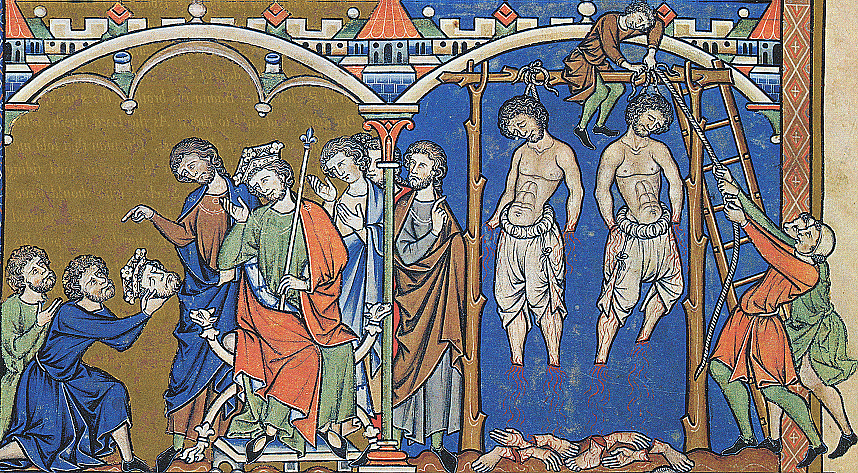 3
3 -
Caliphate of Ashkelon
Yusuf, Caliph of Islam, Sheikh of Ashkelon and Master of the Sword of the Prophet, Keeper of the Shield of the Prophet, Lord of the Lance of the Prophet.
‘With Willing Submission’
Yusuf had assembled his entire council in an old hall in the fortress, which he had styled as a large meeting room, large enough for the council. He watched in silence as they hissed at each other, cursed at each other; made a debate more heated than the sun. “A direct assault would mean many casualties! That is a foolish move!” One voice exclaimed. “But unless we deal with them quickly, we will fall apart! Their labour is the key to all our wishes!” Another countered. All around there were voices, and the split was clear.
“Ahmed!” Yusuf yelled at his brother, breaking his own silence. Ahmed, a man who towered over the rest of the council, with an explosive voice, bellowed at them to be in silence. The response was immediate. The room was silent, as the Caliph wanted. Yusuf gave his brother a grateful nod.
“Now, my brother, what would you have us do?” Yusuf asked.
“A direct attack, my Caliph. There is no other option. We have the firepower, what do these kaffirs have? We have a bren gun, vickers, and the light mortar - and they’re all packed in a chapel. It will be a massacre.”
“And you, Plumber?” The Caliph said to the foreign Englishman, who responded with excellent Arabic. “I agree. We have 8 smoke rounds on the mortar. We use but one, cover the Lance, give them covering fire, and then we have a victory. We force them to pay the Jizya, we shoot the ringleaders, and those who cannot pay, we enslave.”
“Why do we not just starve them out?” Usama Ibn Jubayr, the old intriguer, responded. “We do not even know what weapons they have.”
“The quicker we deal with this problem, the better. Without the Christians, our labour force is gone. We want as few deaths as possible on the Christian side, but we also want them not malnourished. We know how defiant Christians are.” They will hold off starving. We do not want that. We want them healthy.”
The Caliph finally gave his orders. They would carry out Ahmed and Plumber’s plan, using the cover of smoke to attack the Christians in the chapel, and force them to surrender. The Caliph’s forces would surround the chapel in the middle of the night. The makeshift rifles and one bren gun would create covering fire, being conservative with ammunition, whilst one smoke round would be fired and 100 lancemen with melee weapons would emerge from the smoke, throwing javelins and then charging. They are given strict orders to capture and not kill if possible; they were told that if they did this there was a higher chance of getting their own slaves. The lanceman who captures the most Christians would be offered the ‘most graceful concubine’ usually reserved for the Caliph when slaves were taken. It was estimated 30% of the Christian populace, around 450 people (almost entirely women and children), would be taken as slaves. The Lance would be led by Ahmed, and the gunnery and mortar team commanded by Plumber.
“They shall pay the Jizya with willing submission, as the Prophet (Peace be upon him) intended!” Yusuf exclaimed, ending the meeting.
Bashar and the Imam
“Only Jews live this far north on the coast regardless, brother. The British wanted to settle the Jews there.” Mohammed Al Ashkelon, the Caliph’s top Imam, reasoned. He pointed further inland, east toward the cities of Ramla and Jerusalem, as well as Nabalus and others. “We will head that way.” He said. “There will be Muslims to follow the Caliph’s word there, and if not, we can reach our most graceful city of Jerusalem.”0 -
"Where are the theological studies?!" Francois d'Ibelin demands, shocked to see a university without them.
0 -
Caliphate of Ashkelon
Yusuf, Caliph of Islam, Sheik of Ashkelon and Master of the Sword of the Prophet, Keeper of the Shield of the Prophet, Lord of the Lance of the Prophet.
A Census
The newly-made Caliph Yusuf was quick to cement his rule. His first move, predictably, was to see what he was actually ruling. The results were thus:-
Military-Numbering 621 (including himself) the Caliph’s army is in good shape. Nestled firmly in the ruins of the old Crusader fortress, he found they were equipped with: 10 Gewehr 98’s, 3 SMLE 303s, 1 2-inch light mortar, 1 PIAT, 2 vickers HMGs and 1 bren gun. These 18 men equipped with good firearms are known as the ‘Sword of the Prophet’ and were the elite of the army, focusing on offensive firepower. A further 60 are known as ‘Shields of the Prophet’ and have makeshift firearms, serving as a defensive force for the old town, but also quite often playing an offensive role. The Sword can deploy mounted atop horses or dismounted, whatever was needed. These were the best forces the Caliph can field and are mobile, well-disciplined and well-equipped.
The rest are the ‘Lance of the Prophet’, and equipped with melee and archaic missile weapons. Around one quarter of the Lance are camel cavalry. These troops are all fanatical, and their biggest advantage is their ability to withstand fire that would wither other forces, and their ferocity in battle. However, their melee troops often lack discipline and rush into near suicidal attacks, ignoring orders from their commanders or even the Caliph himself. They are also driven by a need for loot; they will stand in battle, but desertion rates can be high if this need for loot is not satisfied. They also wear traditional and ceremonial dress, often unsuited for warfare. The army are all Sunni Muslim males.
The City of Ashkelon-This ancient city is controlled by the Caliph’s forces, however only a small section near the ‘Old City’ has been inhabited by the small population of 3,000. Building on ancient and more recent foundations, the people of the city can quickly establish a prosperous settlement, but at present there is little surplus. In any case, the settlement is prosperous enough so ensure a decent standard of living, attracting foreign migrants, and also sustaining a steady population growth. The land is very fertile despite the wasteland created in ‘45, even enough for basic agriculture.
The Populace-The population is roughly 3,000. It is 48% Sunni Muslim (Mostly descendants of migrants from Syria, Egypt and Iraq) and 52% Levantine Christian. The Christians do not pay the Jizya in silver, as they did in the time of the Prophet Mohammed, but instead pay it in supplies and labour. The result is that the Caliph has a steady income. The Christians are allowed a tiny chapel to worship in, which is in terrible repair. They are forbidden from repairing it and are often treated poorly by the Sunni population, forbidden to own weapons or even ride horses. The Caliphate has no slaves...At the moment.
A New Demand
Bashar wiped the sweat off of his forehead. Surveying the coast ahead of him, he sighed slightly, as the seemingly endlessly Palestinian coast gave no respite. It would not end.
He had been sent by his lord, the Caliph Yusuf, to ride along the Palestinian coast northwards and to find settlements. He then was to tell them of the Caliphate, and all of its glory. He had imagined a much simpler piece of work. He imagined himself parading down tightly packed streets, doing the work of God and fighting for the religion of truth. But he couldn’t forsake his lord - he’d served him since the dawn of his birth.
He hoped to see the ruins of Jaffa and Acre soon. And if not, another settlement...For after all, he was accompanied by the Imam Mohammed, the most knowledgeable man in his town, who knew the Qur’an and many of the Hadith to an undisputable level to expertise. (MOD for encounter(s))
Development of Ashkelon
Yusuf had given a simple offer to the Christians. Aid him in his project, and he would count that as payment of their Jizya. This created a large labour force which he could use for his ambitions. ‘God’s wisdom is revealed through the prudence of his Prophet’s revelations!” He exclaimed, his fiery zeal ever about him; his eyes alight with the flame of faith. His father had taught him well.
The Christians began work on his new projects immediately. Using stone from many of the ruins of the old city, he began works to rebuild the medieval fortress not in the style of the Franks but that of the Muslims.
He also began redeveloping ruined mosques and planned to build one of his own. This mosque, he foresaw, would be a very grand building indeed, and Inshallah it would be not too expensive and time-consuming.
Further, he appointed a council to advise him and to run things in his absence. This included:-
His younger brother, the warrior Ahmed Al Al'iiskandaria,
The aforementioned Imam, known simply as Mohammed Al Ashkelon,
The young architect Imran Kebenei, of Swahili origin,
The foreign British military expert, and convert to [insincere] Islam, Martin Plumber
One of the faithful servants of the Caliph and an effective spymaster, the old Usama Ibn Jubayr.
In addition, 15 other senior members of the Caliphate, including religious, military and civic leaders.0 -
Forum Name:Thesmellypocket
Nation Name:Islamic Caliphate of Ashkelon (Ascalon)
Leader Name: Yusuf Al Al'iiskandaria
Government Type: Islamic Caliphate under the Sharia
Region you'd like to start (central Persia, north Ireland etc):Ashkelon, Palestinian Coast.
Culture (Irish, French, etc):Pan-Arabic.
What's my favorite color:mega milk nerds
Nation Backstory (a nice paragraph or two.): Formed during the 1940's as a tiny radical group called the Jihad of Al Quds, it was led by Yusuf's father, Abu Bakr. After the crisis of 1945, the group gained traction as many of the town of Ashkelon's Sunni population believed the disaster had been sent by God; they were able to seize the near-deserted city of Ashkelon, gather weapons and supplies, and soon their population reached just over 3,000, as people from all of the Islamic World came to join them. In the end, they became a feared Sunni Jihadist group with radical goals. They adopted the flag of the Ottoman Caliph in 1965.
Of the local populace still alive after '45 in the city, most of them were Christians or Jews. The Jews were driven out, whilst the Christians were reduced to dhimmitude, condemned to pay the Jizya with willing submission and live as a second-class citizens. In 1987, at the age of 80, Abu Bakr finally died, leaving his only son Yusuf as Caliph. Yusuf has proven an aggressive and zealous leader (His father had set up his own Madrassah to school the boy in Islamic teachings) and has been keen to stockpile what firearms he can get his hands on - and is willing to do anything to acquire them.
0 -
Rodoljub sings another ballad.
SpoilerJohn, may water take you
To Savoie you should bid adieu
Do you remember the Jackals under Saltpan?
Your prime soldier is nothing but a straw man!
Do the Savoyards hurt you?
Now the truth is in full view!
I don’t like you, John
You wish to rule as one
You destroyed our great king’s dream!
I pray the goodly LORD
Takes your tyranny abroad
Away from Savoie!
I don’t like you, John
You wish to rule as one
You destroyed our great king’s dream!
I pray the goodly LORD
Takes your tyranny abroad
Away from Savoie!
Oh John, this is to be unpleasant
You aren’t even helped by the peasants
Your pitiful guard rout every second
Your Empire is falling, so it’s reckoned!
The Savoyards are steadfast and strong
You can only undo your wrong
I don’t like you, John
You wish to rule as one
You destroyed our great king’s dream!
I pray the goodly LORD
Takes your tyranny abroad
Away from Savoie!
I don’t like you, John
You wish to rule as one
You destroyed our great king’s dream!
I pray the goodly LORD
Takes your tyranny abroad
Away from Savoie!
Do you wonder, how your men take to their heels?
How your serfs desert you, upon wagon wheels?
Oh John, a message from your LOYAL vassals!
“You won’t take our sacred castles!”
You've given land to fools!
Now you'll pay in blood - in pools!
I don’t like you, John
You wish to rule as one
You destroyed our great king’s dream!
I pray the goodly LORD
Takes your tyranny abroad
Away from Savoie!
I don’t like you, John
You wish to rule as one
You destroyed our great king’s dream!
I pray the goodly LORD
Takes your tyranny abroad
Away from Savoie!
5 -
"Blood for d'Amaury." Ser Francois said tearfully, his old liege dead. "God rest his soul. Creator forgive us for wroth, but now is the time for retribution."
0 -
Rodoljub sings a ballad.
Oh, Holy Emperor!
Father of great Horen
Even your forefathers turn from your Oren
Oh, Holy Emperor!
Take divine favour
See even holy mother church waver
Oh, Holy Emperor!
Unvirtuous degenerate
You wish to rule poorly and you cannot abdicate
Oh, Holy Emperor!
Destroy the Feudal order
Whilst your petty wars make havoc on the border
Oh, Holy Emperor!
Few are your cards
They might have been more had you not chosen blackguards
There are no unjust lieges worthy of keeping us!
Oh, Holy Emperor!
Your wroth is clear
Because a Savoyard will not show his fear
Oh, Holy Emperor!
Do you need our swords?
Perhaps you might have not restrained the right of lords!
Oh, Holy Emperor!
You will lose your honour
Your whole treasury is a goner!
There are no unjust lieges worthy of keeping us!
Oh, Holy Emperor!
Your sin is laid bare
To the LORD you act badly without care
Oh, Holy Emperor!
What is there to do?
The Savoyards have chosen and they have not chosen you!
Oh, Holy Emperor!
We made simple demands
But it seems you are more interested in ruling over sands
Oh, Holy Emperor!
You have made an enemy
And for this problem there is no remedy
There are no unjust lieges worthy of keeping us!
8 -
Francois d'Ibelin, though no longer a vassal of Drusco, is filled with zealous anger. "Blood for Ashford!" He agrees fervently.
2 -
Inshallah he shall achieve what he wishes for +1
1 -
Francois d'Ibelin couldn't believe the news. Jurgen had expanded his knowledge on many things:- combat, the virtues, even the very essence of bravery. In shock for hours, he couldn't speak a word; this was the man who had saved his life on and off the battlefield, an old irreplaceable comrade and a worthy mentor.
And now he was gone.
After a long hours, he had only two words.
"Non nobis."
1 -
"Imperial purple is the noblest shroud."
0 -
Form square!
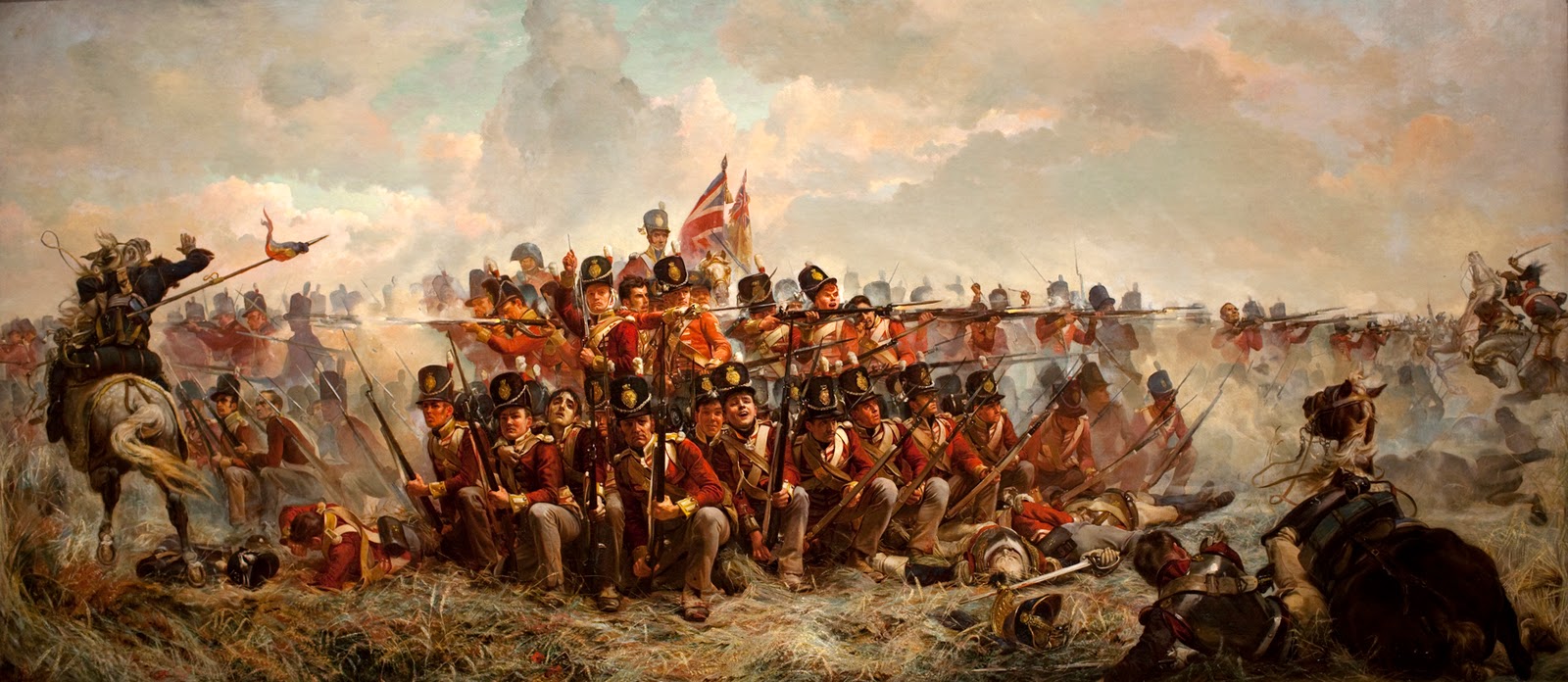 0
0 -
"Your Grace, may you live in harmony and contentment.
I request a position as a judge under the High Magistrate, his Lordship Denis de Bar. I come with his recommendation, and have studied and helped with laws since a young age. I think myself capable of holding true to the knightly and sacred traditions of justice, and would try with great diligence to see this land justly governed.
Ser Francois "Longshanks" d'Ibelin"
2 -
"Le Créateur may not smile upon Krugmas, but the charity and kindness displayed within may be most assur'd to be welcomed." Francois comments.
0 -
11 minutes ago, Nolan said:
"Good thing the church are holding masses in populated areas."
"If there is no mass and other eventful happenings, the areas will never become populated in the first place."
5 -
Francois d'Ibelin is struck at this.
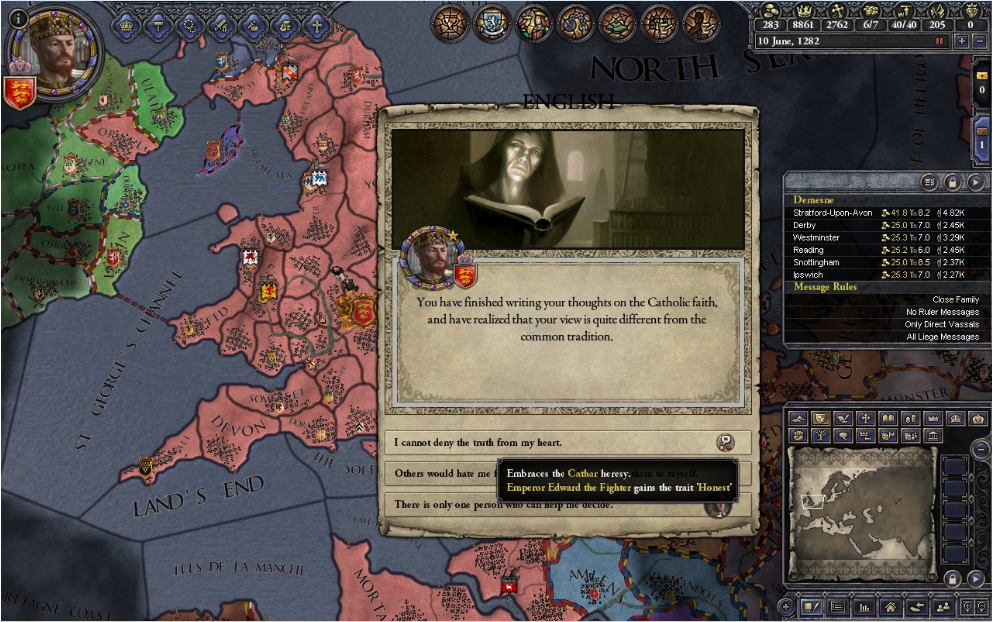 5
5 -
"Savoyard artillery is NOT guided by GOD." A foolish serf cries out.
2 -
Knight of the Golden Lilies
François could only imagine. Only imagine what naval war would look like, smell like, let alone feel like. The utter and complete carnage, the explosive growls and grunts ; the flames. He was alone - at least in his mind. He cared not for the people sat around him in the public house, who gathered here and there with much fanfare, because this was that most foreign and unfamiliar festival they called “Krugmas.” François just ignored them as he poured over a work of naval strategy, the young squire enthralled by writing of such magnificent eloquence that it must have taken the diligence of a thousand skilled craftsmen to produce each letter, or so he imagined. But soon the words became more abstract, and pictures came into his mind. He had seen war before. All her horrors, as close friends had died in Adria and other distant realms ;the pictures were more terrible and vivid than what could possibly be imagined before he had seen war in all her brilliant, brave and brutal aspects.
Soon, the reading stopped. He let a story formulate and flow within his mind, the creativity and passion of a child interweaved with his increasingly mature and adult mind; the age-old tales of chivalric romance intermixed with his practical experience of war in all her frantic chaos. It was the strangest brew one could ever make.
And François could only imagine.
Suddenly, a rough voice growled at his men. He was a bear of a man, towering over them with the added height of his magnificent hat. The hat was truly brilliant:- innumerable jewels of astounding rarity were plastered onto it, and they gleamed splendidly in the golden sun. The jeweled man glanced about him, to see the narrow strait packed with dromons alike to his own, smiling with amusement at the simultaneous, ever-constant grunts of the oarsmen as they pulled his galley closer toward the enemy. “By the truth of our religion, we shall see this city conquered, and you shall have all the loot and enemy women to please you!” He gestured toward each side of the narrow strait, which was packed with buildings of incredible wealth and prestige that was previously thought unimaginable - but amazingly, the city on both sides was without city walls. Dominating it all was a great temple, a huge, opulent building with a large dove symbol towering over the buildings around it. The great symbol of the polytheists, the man thought, the polytheists which they would crush utterly under their unstoppable heel. The man was Baibars, captain of a single galley, yet a destroyer of cities, universally feared, he came seeking to fill coffers with glinting gold and souls with fervent fulfillment in equal measure.
A collective cheer erupted from the men in response to Baibars’ words. They were a diverse mash of troops :- missile troops, who wore only turbans, and the iconic Mamluks, who bore mail armour and scimitars; spearmen, who came for the same reasons as Baibars, and imitated him in every aspect.
The enemy sallied forth to meet them with a pitiful number of galleys , miserably outnumbered and with little hope of victory. Baibars smiled toward the sun.
He was ready to win.
Slowly but surely, Baibars’ own ship came into missile range of a foolish enemy galley. An exchange of missiles followed, with sling bullets and with sling stones, with rocks and with pebels, with arrows and with bolts, and with javelins and with spears. Explosive cries of pain came from both sides, yet few casualties on either side were counted. Baibars watched the enemy traverse closer - the imprudent fools wanted to try and board! It was as if he could smell the fear coming from the enemy’s desperate eyes. All except one. One lone man who stood out from amongst them, his surcoat bearing brightly the sign of golden lilies and proudly proclaiming that this was no common soldier. This was a man of Chivalry. A knight!
A great “CRASH!” was heard as the enemy drew down a narrow bridge between the two ships. Baibars ordered his men to its site, ready to fight back any fighter who was brave or foolish enough to try to cross. A terrified spearman was the first victim of the melee, climbing into the defender's ship to try and gain a foothold for his comrades. Instantly, his hopes were terminated as a spear was thrust from his right, skewering him completely. His body tumbled into the ocean, turning the once deep and vivid blue into a battleground, the first traces of blood etched into the sea as his life spilled into the sea beneath him - and it would not be the last. Next for the execution was that most valiant knight, who pushed ahead of the wavering attackers to set a perfect example of bravery and diligence. The missile troops shot as many missiles as humanly - or divinely - possible at the knight, but his armour seemed to absorb the arrows with little more than a shrug. His shield and armour packed with a dense cloud of arrows, he charged forward, sword drawn, an eternal fervour burning in his bright and fiery eyes which set any enemy who gazed into them to cowardice. The defender's wavered, whilst more and more of the knight’s comrades poured onto the ship.
Then the butcher’s work began. The knight severed a Mamluk’s head, the former man’s blood spilling into the ground beneath him in a thick pool. Each defender surrendered or was killed in a savage blitzkrieg, but Baibars had had enough. “**** it.” He concluded bluntly, knocking over a barrel of deadly incendiary and setting it alight, his face as blank as if he were setting alight wood for a homely fireplace. Leaping off the vessel with speed of a wing'd chariot, he abandoned his livelihood and comrades without a single glance back. He swam with all his might toward a vessel similar to his, inhaling black smoke from his ex-ship and emerging onto the dromon.
Atop, he found a swarthy, short man with a cunning, cruel smirk,who took pleasure in the fact Baibars’ opulent hat had vanished. Baibars instantly welled up with wroth...Of all people! Husayn Ibn Munqidh, that bastard! Husayn was clearly relishing the moment. “Nice bonfire, my friend!” He exclaimed mockingly, giving his customary laugh, a cruel, jeer-like sound which grated on Baibars’ ears. “It is those polytheists.” Baibars replied with all the bitterness of an unripe fruit. “They are led by a man who fears our arrows and spears no more than would an anvil.” Another laugh. “You were just craven. I shall deal with him.” Husayn waved a dismissive hand, deliberately toward the burning wreck that was Baibars’ former ship, that insufferable smirk still cemented on his insufferable face. Baibars wanted to punch that face into dust. “We shall board them this time. I have already captured prisoners.” Husayn gestured downwards as he spoke with a towering hubris, and Baibars could hear a vague wailing sound below, silenced by a harsh growl, or more often, a painful beating.
“Usama.” Husayn ordered the lieutenant beside him, giving him a wink. “Find a weapon for our honourable guest.” Mohammed threw Baibars a rusty old axe, a weapon of a serf, a grave insult if there ever was one. “I don’t need a ******* fancy scimitar to kill, Munqidh.” Baibars retorted. “On this day, I shall surely prove myself a better wario-” Husayn was interrupted as a javelin crashed into his right leg, causing him to cry out with the volume of a million birds. The cries, constant and unending, signalled his utter trauma, and, rendered totally incapable, he babbled incoherently. “I am in command now, Mohammed.” Baibars spoke authoritatively whilst dabbing his paw in Munqidh’s blood with a triumphant smile. “Take Husayn below. Bring some prisoners and an olive branch.” The force of his voice was so great that Mohammed was compelled to obey, and he forced his former commander below.
Typically, Baibars’ orders were carried out without fail and the prisoners, hands bound behind their backs, were driven onto the top deck with desperate whimpers. As the olive branch was waved, the missiles stopped flying. “Polytheists!” Baibars called out to the enemy ship, eyes fixed on the knight. “Shall you continue to fight, knowing the cost of defying our will?” He raised his axe, burying it deep into the neck of a civilian prisoner, a noble heiress. She gave a muffled wail as the axe bit deep into her neck, blood gushing out in thick rivers as she collapsed onto the floor with a sharp thud. Baibars smiled toward the lilied knight, who, for the first time, showed a glint of fear for the first time. So he was human, after all!
The olive branch pulled down, Baibars’ new company loosed such a great volume of missiles that the sky darkened; this hell that was unleashed was reciprocated by the enemy, and within moments both sides were grasped by the harsh hand of death. The ships were hooked so closely together that one could leap from one to another, and Baibars’ men did exactly that with all the zeal of preachers. An intense melee followed, and in the midst of it all was Baibars’ great enemy, the almost fearless knight. Baibars rushed at him, chopping downwards madly and then suddenly swinging, go for the knight’s right, propelling his shield away. Baibars then swiped at his right arm, causing the knight to instinctively drop his weapon. With all the killer instinct of a tiger, he could smell his kill. But the knight was swift. Trapping his enemy’s axe, the knight chucked it away, before Baibars, red with rage, wrestled him to the floor with him. The knight withdrew a long rondel dagger, striking into Baibars’ neck and causing him to gurgle furiously. The knight groaned as he forced the massive, dying hulk off of him, standing up proudly. He was soaked in blood, peppered with arrows, and now filled with hubris. “I am Sir Bal-”
His words - and life - were cut short by a whizzing sling bullet. The last thing the knight saw was a second ship boarding them from the other side. His body tumbled into the ocean, staining the once vivid blue sea a touch redder as his life spilled into the sea beneath him...And it would not be the last.
But François could only imagine.
Commentary:- this is my character some years ago, and represents his transition from a boy brought up with chivalric romances to a man who knows the reality of war, tempered by experience in battle
0 -
OOC:
Skype name:Mohammed Ibn Jubayr
Username:Thesmellypocket
IC:
Name:Ser Francois "Longshanks" d'Ibelin
Reasons for applying: By the axe of Saint Godwin, I am determined to be among my long-time comrades in Peremont, whom I have to thank for much of what I have become and what I have. They, next to the help of God, are what guided me to where I am. It is they I wish to serve under, in a most holy and pious Brotherhood!
Do you agree to PK if RP is done appropriately and well?:Yes.
0 -
"Church! Luxury. When I was young we used to worship in a box in the middle of the road, all eight hundred of us. We used to work 29 hours a day for two mina a week, and at the end of it my dad would get a belt buckle and thrash us to oblivion - if we were lucky!" An old burgher rambles.
0 -
+1 An Austrian-born man rises from the ranks and is given a government position due to his words gaining popularity. Now where have I heard this story before?
1 -
"A weak knight...I hope God will rid us of him soon..." A jealous Burgher would comment.
"STRONG." A Godly serf of the countryside would rebuke.
1 -
Ser François d’Ibelin
https://www.youtube.com/watch?v=m5sVElgdtAg
Nicknames:Due to his love of religious images, he is known as “L’Iconodule.”
Most people address him as “Ser François” or simply “Sir.”
Originally from house de Argon, he took up the new name “d’Ibelin”, after his maternal grandfather.
Age:23
Gender:Male
Race:Heartlander (Auverginian)
Appearance
Height:A man noted for his highly impressive height (especially for his lowborn background), he stands at 6 foot 4 inches.
Weight: 161 pounds.
Body Type: Once scrawny and weak, over years of training he has bulked up a lot. He is the epitome of an Auverginian knight:-Large, tall, eloquent.
Clothing: Being recently knighted, he has a plain blue surcoat over heavy mail. Under this he has an old and trusty gambeson, which has saved his life many times.
He wears an old kettle helm, seemingly inappropriate for a knight and more of a commoner’s helmet.
Scars: Francois has considerable scarring on his right arm from his leprosy, which he suffered from around the age of 12. However, the disease has long since passed. Usually, the scarring is concealed.
Further, he has a large scar from where a gash was on his right arm. It was gained in a battle against the necrolytes.
Finally, he was a scar on his left leg, which was clearly caused by some sort of polearm during the Adrian War.
Personality, Morality and Traits
Religion: The Church of the Canon
Religious Head: The High Pontiff of the Canon
Alignment: Lawful good
Personality: A pious young knight, fiercely loyal to the Savoyards and trying with every fibre in him to adhere to the code of chivalry and the virtues of the church. He almost always blames himself for a failure, even if it is not his fault.
The condition of leprosy humbled him, to some degree. Once haughty and proud, he always has to bite himself back and practically kick himself for acting in such a way. He respects his fellow fighting man; if they fight honourably, he is a rather chivalrous opponent. However, should the enemy disengage from such strict principles, he is the definition of wroth; he shall show no mercy towards them.
He is also a very trusting person. Easily manipulated and falling for tricks, he always assumes people’s good intentions which can make him sociable and gregarious, but at the same time can cause serious problems.
He used to be brave to a fault, but now he has become more and more cautious. He has lost his ability to charge headlong into almost certain death, preferring, as the code dictates, to use his weapons as the last resort.
Areas of Interest
Military Strategy-Francois, as a squire to a Lord Marshall, absorbed many lessons of war. He studied many notable works of strategy, including “The Art of Strategy” and “The Art of Siege Warfare.”
Nobility and Virtue- François has been educated in the Code of Chivalry, and traditional Godly values. He is terrified of the idea of “absolutism”, since he sees it as a usurpation of the rights of the nobles. François has had the idea of Feudal Monarchy drilled into him, and naturally opposes anything that gets in the way of the ideal he would like to see for Oren.
Law- François believes in good justice for all in the realm, and opposes any arbitrary authority which can override laws easily. He has studied several works of law, and has an ingrained knowledge of the Liber ex Justitia, therefore meaning he is a supporter of Savoyard legal principles, such as innocent until proven guilty.
Chronicles- François records his story in The Annuls, an ongoing, partially published work and already his most noteworthy.
https://www.lordofthecraft.net/forums/topic/136963-the-annuls-by-francois-dibelin/
Inventory and Fighting Style
Possessions- Francois has a heater shield, with the Golden Cross of Ibelin painted onto it. Further, he was an arming sword in an elaborate scabbard, and also has many items of the arts of peace-a lute and lyra. He usually carries some basic food and a canteen for water.
Fighting Style- Savoyard foot knight.
Trained Weapons- Ibelin is trained in the typical knightly weapons. He is, for the most part, a foot knight, trained with the poleaxe and similar weapons, as well as arming sword and shield. He does, however, have basic skills with a lance or spear.
Favoured Weapons- Arming sword and poleaxe or heater shield.
Missile Weapons- Ibelin is completely inefficient with bows, though he can use crossbows to a basic degree. He is also skilled with throwing weapons.
3



The Flaws of the Absolute, by Francois d'Ibelin ((Images from the Morgan Bible, 13th Century))
in Vailor Roleplay Archive
Posted
"This is no legal thesis, it is merely what lies within my mind at present." The author responds.